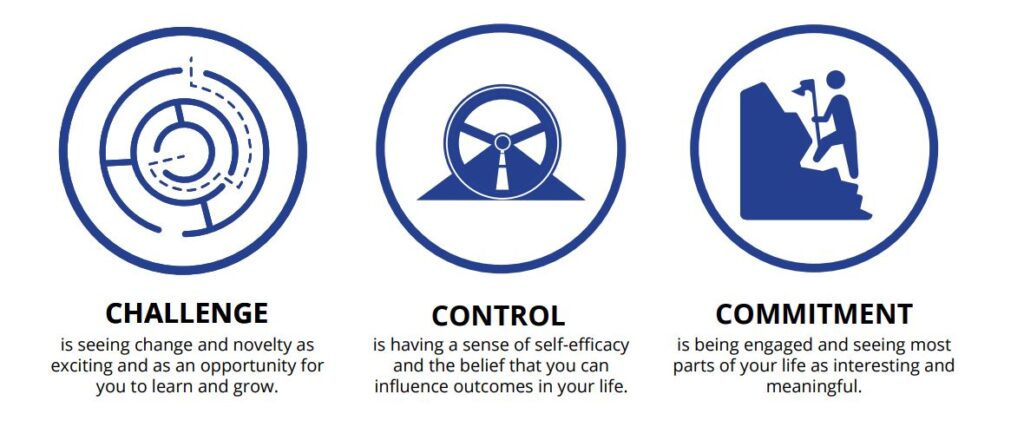Harness Hardiness To Protect Your Team Against Burnout
Is stress at work affecting your well-being? We know that the COVID-19 pandemic has greatly heightened the stress that employees experience: nearly 70% of American workers reported that the COVID-19 pandemic has been the most stressful time of their career. Organizations are urgently seeking to understand how they can help their employees tackle workplace stress and burnout.
One factor that is important to consider related to stress and burnout in the workplace is a person’s level of hardiness. Hardiness is best understood as a generalized mode of functioning that influences how people interpret the world and make sense of their experiences. Your hardiness level determines how you react and respond to stressful and unexpected situations.
There are three components that make up a person’s hardiness level:
- Challenge: Seeing change and new experiences as opportunities to learn and develop
- Control: Belief in one’s ability to control or influence events and outcomes
- Commitment: A tendency to see the world and day-to-day activities as interesting, meaningful, and having purpose

Together, these three components work to make up a person’s total hardiness level, which has important implications for how they cope with stress and burnout. MHS has collected data over the last few years from various sources and explored just how crucial hardiness is to predict a person’s well-being.
Hardiness Protects Against Burnout
In a recent study conducted by MHS, we collected data from full-time employed individuals and measured the relationship between people’s levels of hardiness and their experiences with burnout. Burnout is often conceptualized as experiencing high levels of emotional exhaustion, cynicism, and low professional efficacy.
We found that people who are higher in hardiness (compared to those who are lower in hardiness) reported:
- Lower emotional exhaustion: Hardy people were less likely to feel overextended and exhausted by their work.
- Lower cynicism: Hardy people were less likely to have an indifferent or distant attitude towards their work.
- Greater professional efficacy: Hardy people were more likely to be satisfied with past and present accomplishments, and they expected to continue to be effective at work.
Why does hardiness protect against burnout?
One thing we know for sure is that hardy people interpret and rationalize situations differently than people who are lower in hardiness. MHS’ research shows that people who are higher in hardiness are more likely to engage in active coping and positive reframing strategies when faced with stressful situations, and they are less likely to engage in denial and disengage from the stressful situation.
As an example, consider a leader who has had two people resign from their team and the leader needs to take on the work of those employees until they can hire new replacements. When faced with this stressful situation, a leader higher in hardiness would be:
- More likely to take direct action to tackle the problem (e.g., start working with Human Resources on hiring replacements immediately) and look for something positive in the stressful situation (e.g., they now have an opportunity to bring in some fresh perspectives to the team).
- Less likely to ignore the situation, hope it resolves itself, and take on the mentality that someone else will do the work to fix the problem for them.
Hardy people interpret stress as something to overcome, rather than to avoid, and this positive and problem-focused approach helps them experience less burnout in the workplace.
The Benefits of Hardiness in the Workplace Beyond Burnout
Although a person’s hardiness level plays a critical role in their tendency to experience burnout, there are additional benefits to having hardy employees and leaders in an organization. Some additional insights from MHS’ research include:
- People who are higher in hardiness are more likely to report being successful in their jobs.
- People who are higher in hardiness are more likely to report being engaged at work.
- In an examination of data collected during the COVID-19 pandemic, we found that people who were higher in hardiness were more likely to indicate that the pandemic made no change or had a positive change to their workplace performance and employment stability.
Hardiness plays a critical role in the mitigation of burnout and workplace stress. The good news is that, with some effort, hardiness can be developed, and people can be trained to take on a hardy mindset to tackle stressful situations!
Learn more about MHS’ Hardiness Resilience Gauge. Grounded in over 30 years of research and development and provides valuable insight into an individual’s level of hardiness and their ability to cope with stressful and unexpected situations.




















